Humanities & Social Sciences
CHUSS Presents the highest number of PhDs during the Mak 72 Graduation
Published
4 years agoon
By
Jane Anyango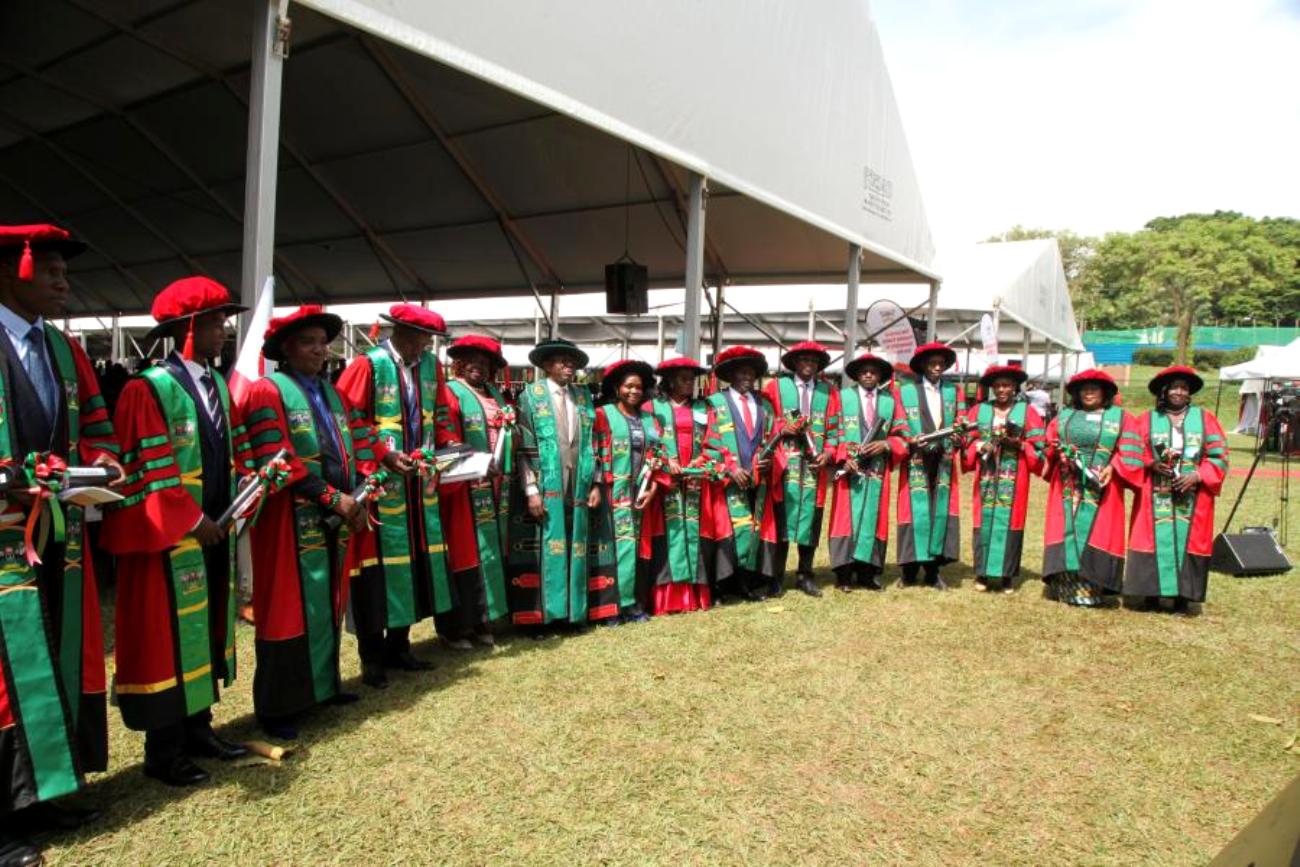
The College of Humanities and Social Sciences (CHUSS) has presented the highest number of PhD graduands for the Makerere University 72nd Graduation that started on Monday 23rd to Friday 27th May 2022. Out of the 100 Doctorates across all colleges, CHUSS presented 25 PhDs.
This is the second time CHUSS is taking lead in the production of PhDs. During the 71st Graduation ceremony held from 17th to 21st, May 2021, the college presented 22 PhDs out of 108 Doctorates across all colleges, the highest of all.
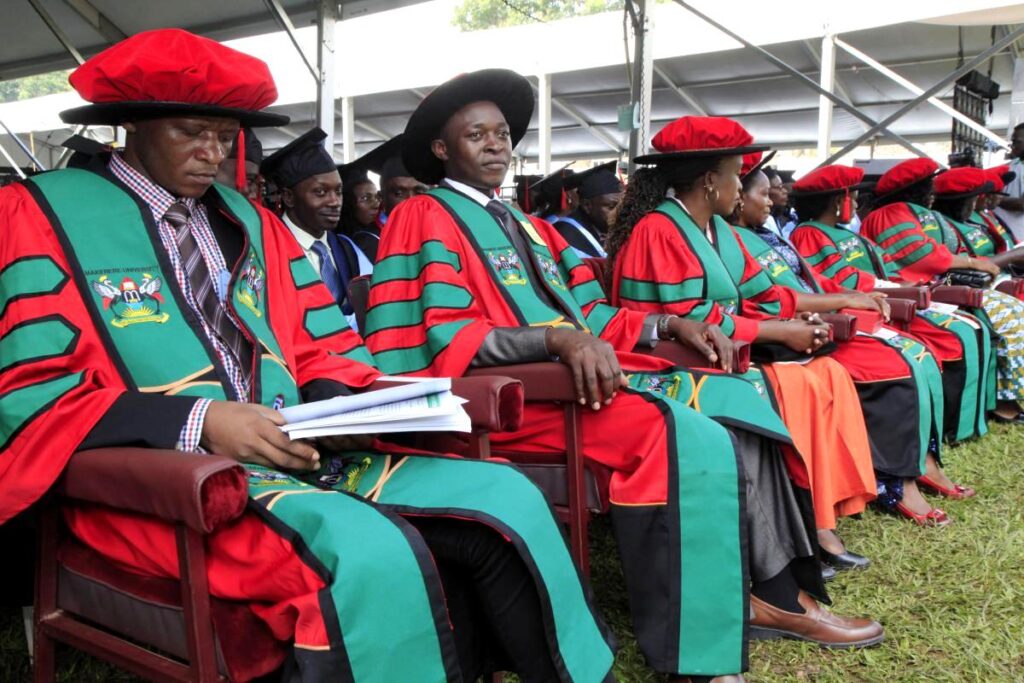
On this fifth and last session of Makerere University’s 72nd Graduation Ceremony CHUSS also presented over 165 Masters and over 1,500 undergraduates. The college also presented 07 candidates for the Diploma in Stratery and Warfare.
“I congratulate the College of Humanities and Social Sciences on producing a record 25 Candidates for the conferment of the Doctor of Philosophy Degree,” The Vice Chancellor Makerere University Prof. Barnabas Nawangwe said.
A total of 12,474 graduands received degrees and diplomas of Makerere University during the 72nd graduation ceremony. Of these, 100 graduands graduated with PhDs, 1,236 with Masters degrees, 10,998 with Bachelor’s degrees and 140 with undergraduate and postgraduate diplomas. 52 % of the graduands were female and 48 % are male. Forty of the 100 PhD graduands and 492 of the 1,236 Masters graduands were female, representing 40% in each category.
The Chancellor’s remarks
Presiding over the ceremony, the Chancellor Makerere University, Prof Ezra Suruma thanked the Makerere University Council led by Mrs. Lorna Magara for their untiring efforts in supporting the administration to ensure the smooth functioning of the university. Prof Suruma also recognized the contributions of the Senate and the academic staff who have done so much to guide the graduands through the complexities of academic life.
The Chancellor acknowledged the contributions of various institutions and organizations towards the University notably, the Government of Uganda, staff, students, the development partners and religious leaders and all stakeholders, especially the parents, for the vital role played in supporting Makerere University to pursue its educational vision .
Prof. Suruma commended the graduands for enduring hardships that included mental stress, financial deprivation, social alienation and continuous intellectual harassment otherwise known as testing and examination adding that having survived all those hardships, Makerere University has awarded them survivors’ certificates to testify that they have been tested and found fully fit for tough duties anywhere in the world.
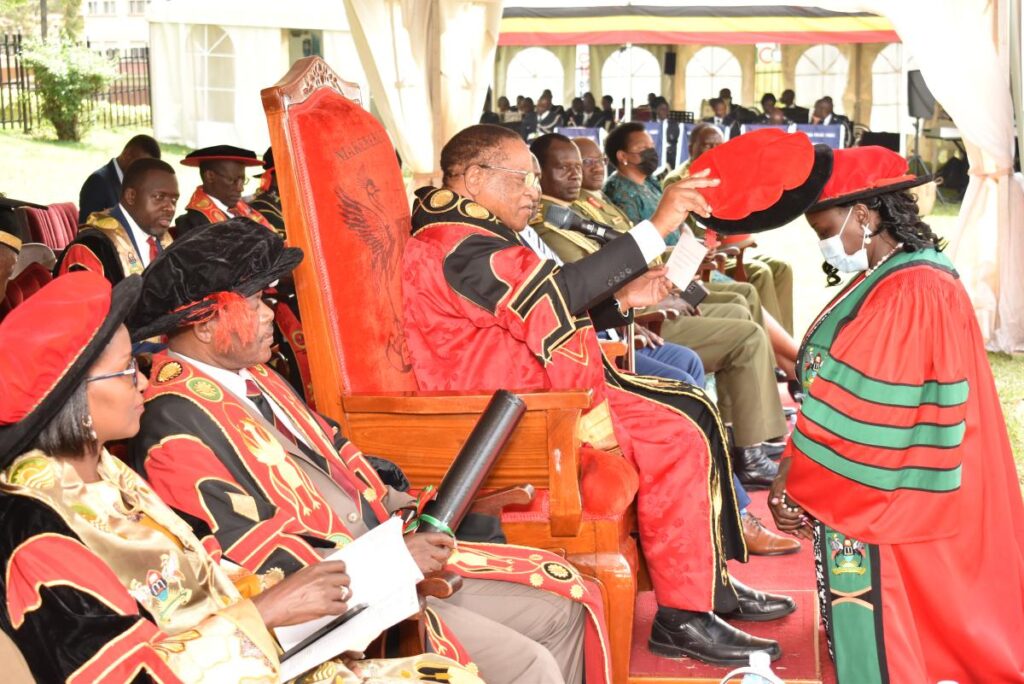
“I thank you very much for enduring and finishing what you came here to do. You have brought glory not only to yourselves but also to your loved ones, to your parents, to your friends and to God.
The world which you are now entering is filled with both old and new challenges. For example, the war between Russia and Ukraine has altered the global geopolitical environment. The prices of fuel have shot up dramatically, and many other commodity prices have also been affected. We now have to find solutions for survival in this new environment. I believe that we have to be more aggressive and creative in the face of this war. We need to change our economic system and even ideology, to respond to these new challenges”, the Professor advised.
Prof. Suruma told graduands that fortunately, there are also new opportunities such as the expansion of the East African Community to include the Democratic Republic of Congo that may be the most important market opportunity for Uganda since independence. He urged them to wake up and aggressively respond to this great opportunity.
The Chancellor noted that despite the severe limitations on employment imposed by the lack of capital and the cost of capital, there is need to intensify creativity to find ways to break these financial limitations and to realize that this challenge is a continuation of the African struggle for freedom. He added that colonialism has never ended but just continues in a new form hence the need to wake up to that challenge to set themselves free.
“Let us endeavor to stand firm on our principles even in the face of neocolonialism…
Fighting against slavery and colonialism and imperialism has never been easy. Each generation must wake up, define the problem and make its contribution to the solution. We must wake up and not fall asleep when our house is on fire”, The Chancellor stated.
Prof. Suruma reminded the congregation of the upcoming Uganda Martyrs celebrations who made stand for what they believed and paid with their lives stressing that as long as the challenges of poverty and injustice remain, there is no choice but to struggle for solutions for survival in our world.
He told the congregation that Uganda’s challenges range from the microeconomic struggle at the household level in the parish to the national and regional and international struggles for markets for coffee and oil and therefore need courage, commitment and organization to resolve these problems.
The Chancellor also stressed the need for everyone to ask God for wisdom to do what is right in the face of the hard challenges and thanking God for the gifts of time, education, of being alive where many have passed, the gift of a sound mind, the gift of eyes and hands and a strong heart and body.
The professor also advised graduands to extend a helping hand as they pass through this world, then their lives, gifts, will not be in vain, nor be wasted. This, he said is not all about doing big things, making news and getting applause but even small things matter.
“It is a big dark world out there. There is a desperate need for a helping hand. Please take your candle and shed some light wherever God has put you. You might not make the national or international headlines. But to those whom you give a helping hand you will be the most important headline of their life”, the Chancellor guided.
The Vice Chancellor’s Remarks
The Vice Chancellor Makerere University, Prof. Barnabas Nawangwe said, despite the disruption caused by the COVID 19 Pandemic, the university council through the support and guidance of the university Council to push through and minimize the time lost, extending appreciation to staff and students for soldiering on in spite of the devastation and embracing the Open, Distance and e-learning.
The Vice Chancellor reported that the university has continued to grow her research capacity in line with the strategic plan (2020-2030) which seeks Makerere a fully research led university.
With more than 1,000 of our academic staff holding PhDs, Makerere is a formidable research institution currently ranked No. 2 in Africa as far as research is concerned. Globally Makerere University ranks to in collaborative research and in clinical research”, Prof Nawangwe said.
The Vice Chancellor said Makerere today competes favorably with any other top universities in the world as far as quality research is concerned due to heavy investments in human resource and infrastructure development by government and development partners.
Prof. Nawangwe reported that the College of Humanities and Social Sciences CHUSS has continued to strive for greater academic excellence, research and community service with several staff of CHUSS are involved in research and are part of international research networks.
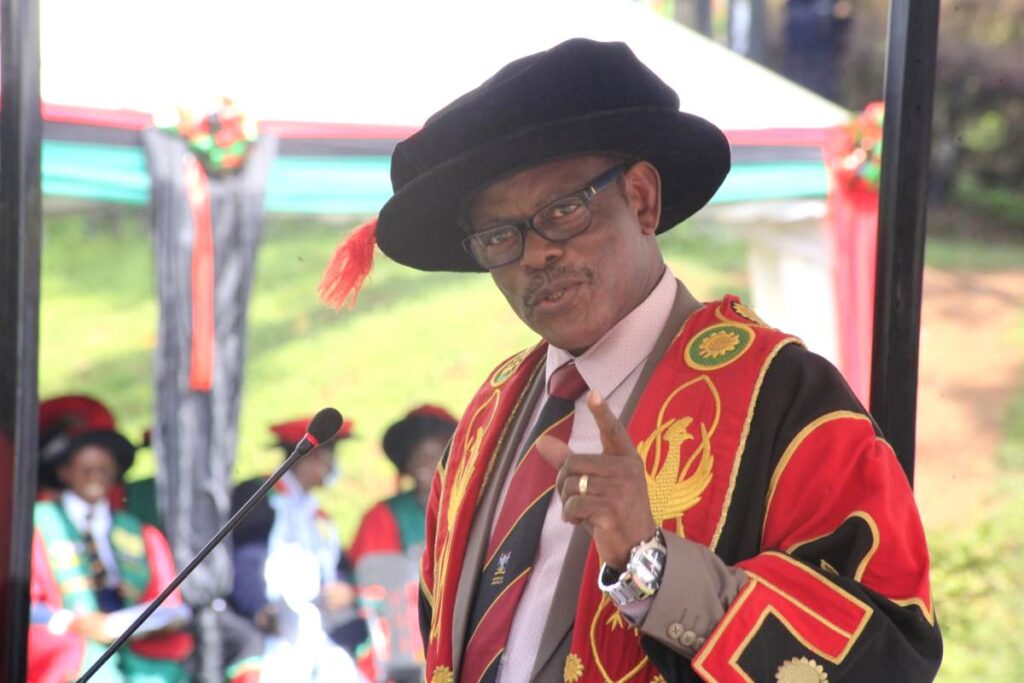
Through CHUSS, the Vice Chancellor said, Makerere University secured USD 800,000 for archival research funded by the Mellon Foundation, USA. The project entitled: “Archiving, Memory and Method from the Global South”, is aimed at building the capacity of staff and students to study formal and non-formal archival repository institutions, community archiving and intangible archives such as folklore, dance, music and other oral forms.
Through these oral forms Prof. Nawangwe said the countries rich cultural history can be disseminated, preserved and handed down to the next generations. The project is also aimed at enhancing the teaching and learning in the humanities and social sciences.
“In our internationalization efforts, the university signed a Memorandum of understanding with Yunus Emre Institute of Turkey aimed at enhancing international communication and building strong relations with Turkey. By signing this protocol, Turkish language courses will start at Makerere University. Both Makerere and Yunus Emre Institute will be developing joint research, organizing joint academic, scientific and cultural events and, reviewing academic curricula”, Prof. Nawangwe read.
In addition, he said, collaborative efforts have been concluded to link Makerere University with Kyoto University, Japan through a program initiated by the Ministry of Education, Sports, Science and Technology of Japan known as, “ Innovative Africa: Educational Networking Programs for Human Resource development in Africa’s SDGs. This collaboration involve international exchange which is essential in enhancing knowledge and academic activities as we aspire to be a research-led University.
Relatedly, the Vice Chancellor said, the CHUSS launched a new Masters program in French Language Studies to build professional capacities in the mastery of the French Language, develop skills in the pedagogy of French and impart knowledge on the cultural and political relations of the Francophone world. The programme is hosted by the Department of European and Oriental Languages. In a nut shell, CHUSS has provided renewed leadership in the expansion of language capacities in African languages as well oriental languages. In this way Makerere becomes a leader in regional integration and development.
Prof. Nawangwe commended CHUSS for remarkably being active in the MAK@100 celebrations.
“One of the many activities in these celebrations was a biography recital in honour of “Zadok Adolu-Otojoka one of the highly celebrated icons of music education and professional music performance in Uganda and East Africa. He served as Head of Department of Music, Dance and Drama (now Performing Arts and Film) at Makerere University in the mid- to-late-1990s and was particularly famous for his charismatic conducting of the university anthem and the mesmerizing leadership of the academic procession during Makerere graduation ceremonies. This celebration of a living legend was very commendable and was highly appreciated by Zadok himself and the larger performing Arts fraternity”. The Vice Chancellor appreciated.
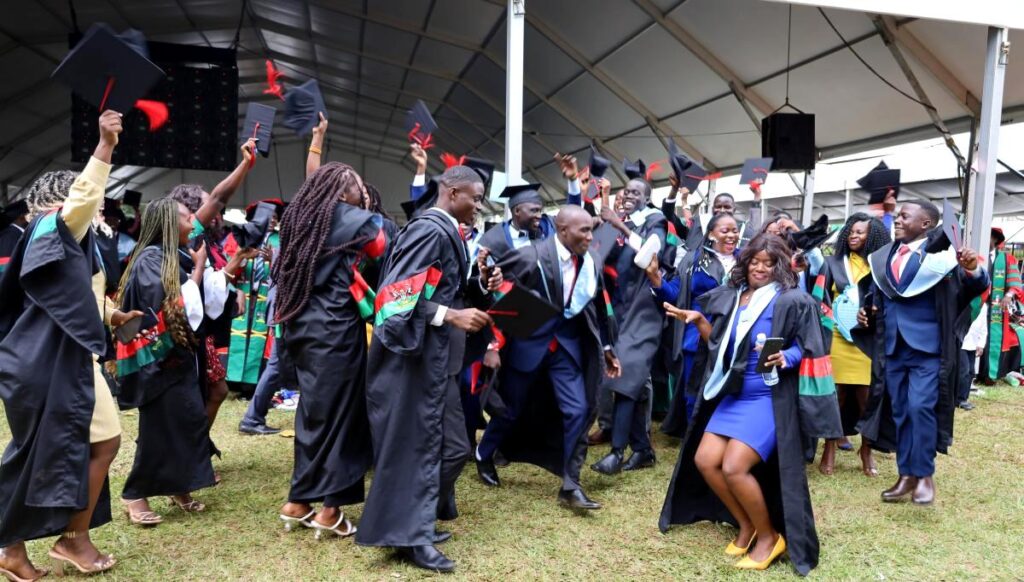
Prof. Nawangwe recognized the Government of Uganda for the release of UGX 21 billion for the reconstruction of the iconic main building. He also invited the congregation to participate in the celebrations to Mark the 100 years of service to humanity whose climax will be on 8th October 2022.
To the graduands as they leave Makerere University, the Vice Chancellor urged them to always be proud of their Alma Mater and be her good Ambassadors.
“Go and put to good use the knowledge you have received from one of the best universities in the world to change your communities, your country and humanity. Put your trust in God and honor your parents and opportunities will be opened for you. Do not forget the Gates of Makerere”. Prof. Nawangwe advised.
He also informed graduands that transcripts for graduands on 4 and 5-year programmes were ready for picking the following week and for those on 3-year programmes, transcripts will be ready for picking beginning the second week of June 2022.
You may like
-


Makerere University commemorates 13 transformative years of partnership with Mastercard Foundation
-


200 UVTAB students graduate: CEES emphasizes Skills, Integrity and Community Impact
-


Mak News Magazine: February 2026
-


Celebrating Academic Excellence: CoBAMS Presents 975 Graduands at Mak 76th Graduation Ceremony
-


Makerere’s 76th Graduation Ceremony: CHS showcases research strength with 26 PhD Graduates
-


Mak 76th Graduation Ceremony: CoNAS Presents 16 PhDs & Best Performing Male Student in the Sciences
Humanities & Social Sciences
Meet Najjuka Whitney, The Girl Who Missed Law and Found Her Voice
Published
1 week agoon
February 23, 2026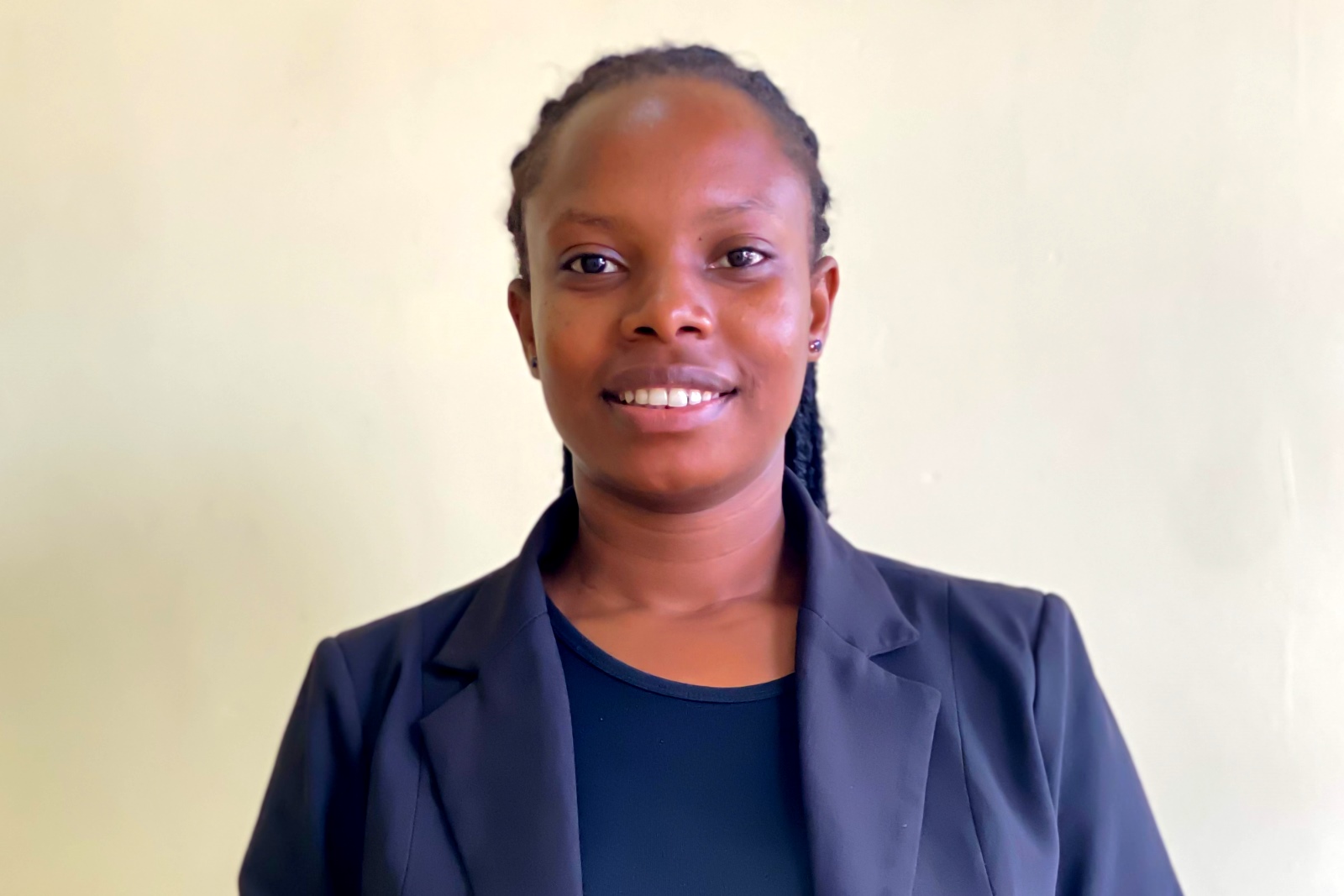
On the morning of Friday, February 27, when the academic procession winds its way across Makerere University’s Freedom Square for the last day of the 76th Graduation Ceremony, Whitney Najjuka will walk into history with a number beside her name: 4.46.
At Makerere, that number means First Class Honours. It means the Vice Chancellor’s List. It means she graduates as the only First-Class student in Journalism and Communication this year. But numbers, as Whitney has learned, rarely tell the full story.
Born on March 27, 2002, in Nabbingo, Kyengera Town Council, to Margaret Kusemererwa and Fred Kasirye, dreamt she would do Law, one of the disciplines, prestigious, almost inevitable next steps for a student who had excelled in secondary school. She had done everything correctly. Studied hard. Scored well. Followed the script.
But Makerere University had other plans. She missed the pre-entry mark, but found her name under Journalism and Communication, another prestigious course offered by the Journalism and Communication Department at Makerere University.
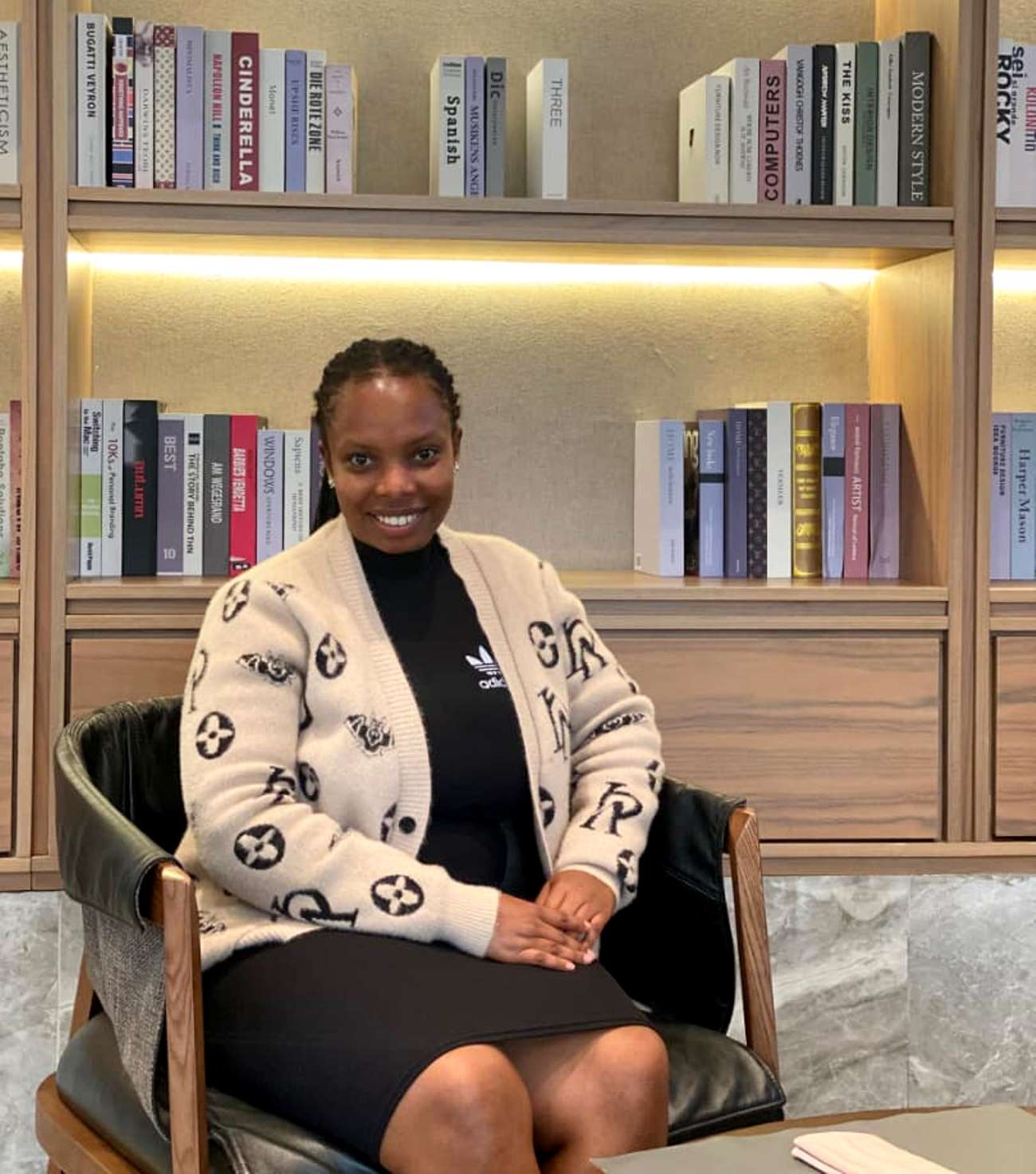
Najjuka began her academic journey at Muto Primary School in Buwama, earning 8 aggregates in the Primary Leaving Examination, a performance that positioned her strongly for secondary school.
She would later join St. Lucia Hill School, Namagoma, where she earned 20 aggregates at O-Level and 17 points in History, Luganda, and Divinity at A-Level.
Missing her dream course, Law, felt at first, like a detour. But Whitney was encouraged by Sanyu Christopher, her uncle, and she settled for a government-sponsored slot in the Bachelor of Journalism and Communication at Makerere, which she had applied for before.
She entered uncertain. But she graduates transformed.
The Pivot That Became a Purpose
Whitney speaks of her early university days with candor. She did not arrive at the Department of Journalism and Communication with a burning childhood ambition to be a journalist, but because another door had closed.
Then, Social and Behavior Change Communication happened. Applied Strategic Communication happened. She began to see media not as headlines and microphones, but as architecture, shaping how societies think, argue, and act.
The turning point came in her third year. The Female Journalist Foundation published her story on Sexual Gender-Based Violence (SGBV) and its emotional toll on survivors. What startled her was not its publication but the reaction. Comments flooded in. Debates ignited, especially about the role of men in combating GBV.
“I realized media doesn’t just report,” she says. “It frames how society views a crisis.”
Her voice, once tentative, had entered a national conversation.
The Discipline Behind 4.46
At Makerere University, a First Class CGPA is not built on brilliance alone but on ritual.
Whitney’s ritual began with showing up, on time, every time. She treated lectures as appointments with her future self. She refused to confine her learning to the syllabus. While attending workshops at the Aga Khan Graduate School of Media and Communication and obtaining external certifications, she sought and was open to mentorship through the Public Relations Association of Uganda (PRAU).
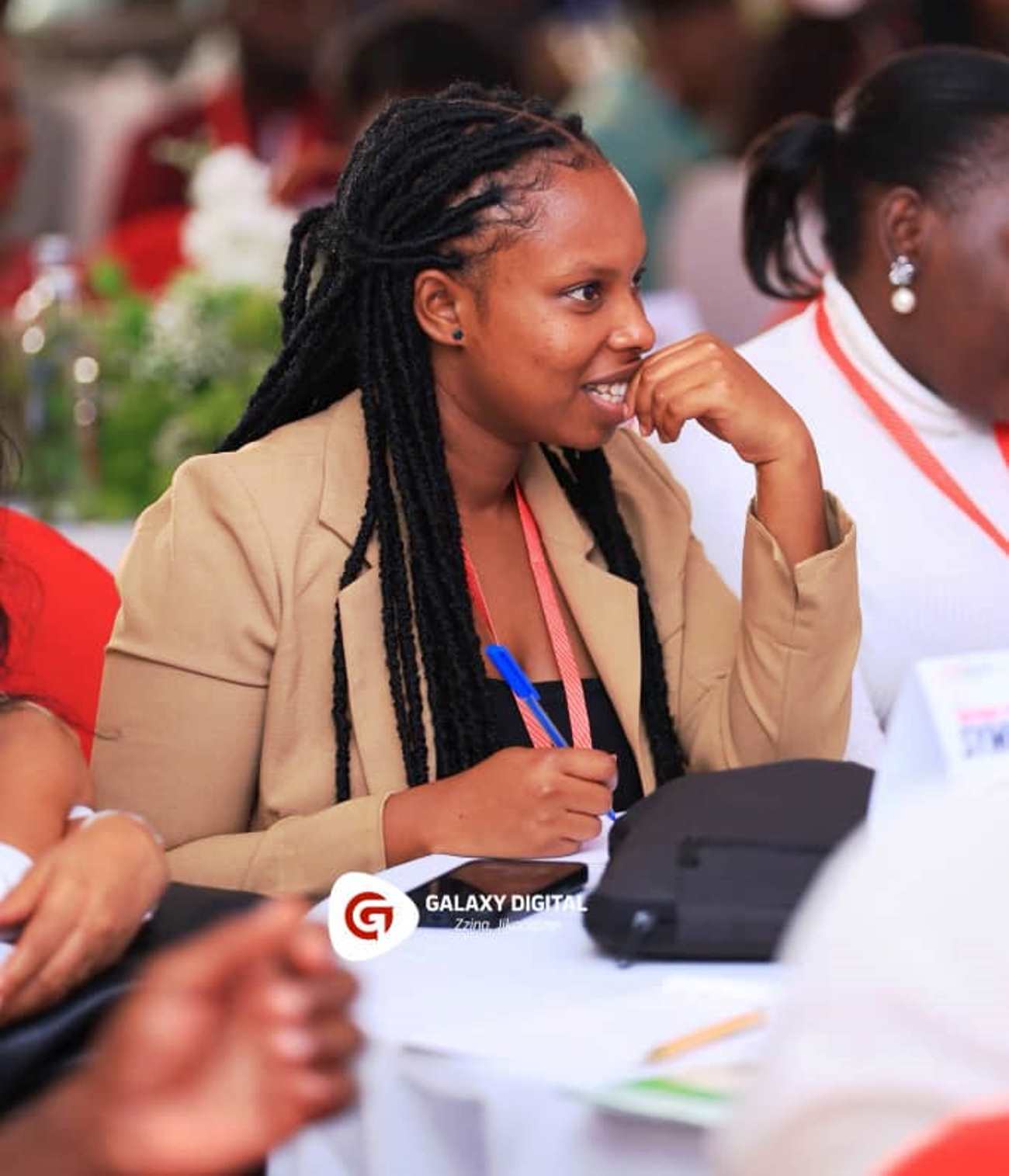
She wanted theory anchored in practice. And then there was the commute.
From Nabbingo, a hill in Wakiso District, some 18.6 km to Kampala, where the Makerere Main campus is situated, and back, nearly 20 hours a week dissolved into Kampala traffic. Two-hour journeys before 8:00 a.m. lectures. Dust. Noise. Headaches. She learned to manage energy the way others manage time. Fatigue became a tutor in resilience.
“I had to be intentional with every remaining hour,” she says. “Excuses were not an option.”
Learning to Practice Communication
If classrooms taught her analysis, presentations taught her courage. Pitching projects, defending research, and standing before peers quick to critique forced her to think on her feet. She was no longer simply studying communication; she was practicing it.
In 2024, the AGMES Fellowship at the Aga Khan Graduate School of Media and Communication pushed her further. She received funding to produce a capstone project on the mental impact of gender-based violence on survivors. She identified sources, conducted interviews, handled trauma with care, and worked with professional editors.
The Communication, she learned, is logistics and ethics as much as eloquence.
The Future She Sees
Whitney is optimistic about Uganda’s media landscape. The digital shift, she believes, has democratized influence. Young communicators are no longer confined to legacy newsrooms or offices.
Yet she sees a gap in the absence of structured research on sustainable, ethical, profitable independent media ventures in Uganda. Her ambition is not only to practice communication, but to study it. To produce data-backed frameworks that help young Ugandans transition from graduates to media entrepreneurs.
She wants to make the impact scalable.
What Remains
As the only First-Class graduate in her cohort, she is careful not to mythologize herself. “Success isn’t brilliance alone,” she says. “It’s a daily commitment when nobody is watching.”
Even before graduation, Whitney had stepped into the industry through a mentorship internship at Capital One Group (COG EA Ltd), a strategic marketing communications agency operating across East Africa.
At Capital One Group, we spoke to Paul Mwirigi Muriungi, the Managing Director and Head of Strategy, who spoke of Najjuka as a progressive and intentional young professional who approaches her work with curiosity, maturity, and responsibility.
“Her attitude is exemplary. She is teachable, receptive to feedback, and eager to grow. While technical skills can be taught, character, work ethic, and mindset determine long-term success, qualities that Whitney consistently demonstrates. Given her academic excellence and professional application, we believe she has a bright future both at Capital One Group and within the wider communications industry. She represents the kind of talent the profession needs: thoughtful, adaptable, and committed to excellence.
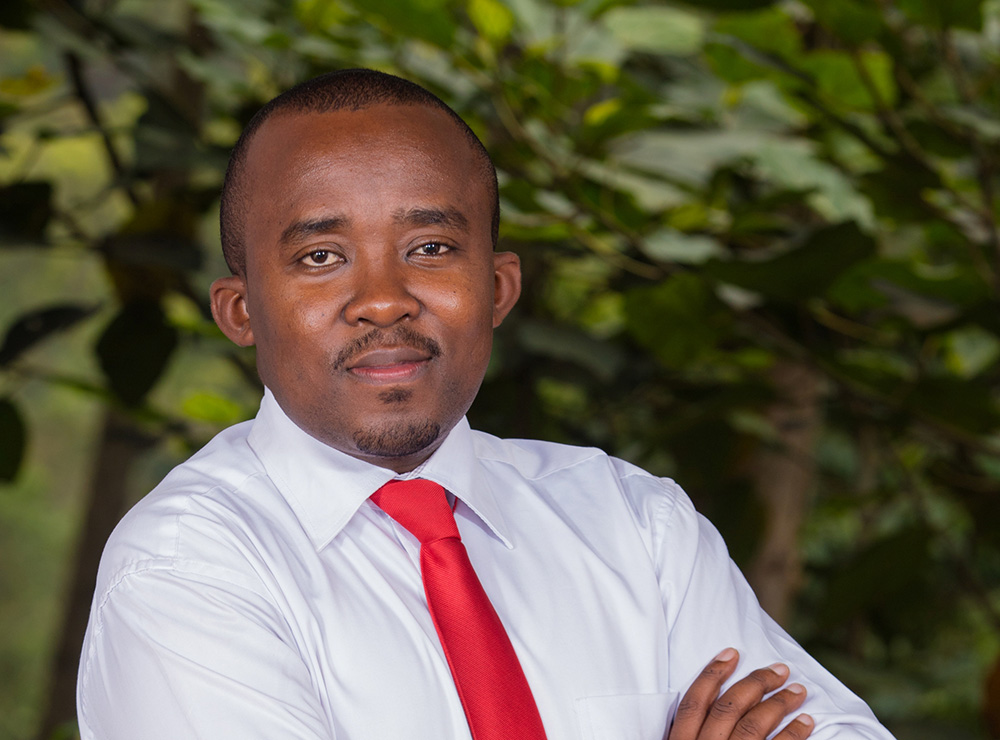
“We look forward to seeing her next chapter unfold,” says Mwirigi.
Najjuka’s gaze extends beyond her own trajectory. She speaks of what the Department could become. Furnished and equipped with industry-standard equipment, newsroom simulations, and deeper investment in data journalism as prayers. Her excellence is not self-congratulatory, but it is forward-looking.
“The University should support the Department to procure industry-standard equipment. Access to high-quality cameras, sound booths, and updated editing software like Adobe Creative Suite is critical to our learning environment,” she says.
Adding that, “We need a newsroom simulation, a physical or digital space where students work under real-time deadlines to produce content for the public. That would prepare us for industry and even strengthen the University’s own media platforms.”
In an era defined by metrics, algorithms, and digital traceability, data journalism is no longer a niche skill but a sine qua non of credible reporting. “There should also be more focus on data journalism and search engine optimization. These are no longer optional skills. Students would benefit immensely from stronger training in these areas.”
Dr. Aisha Nakiwala, the Head, Department of Journalism and Communication, says the faculty are very proud that she is graduating with a First Class—the only one in this year’s cohort.
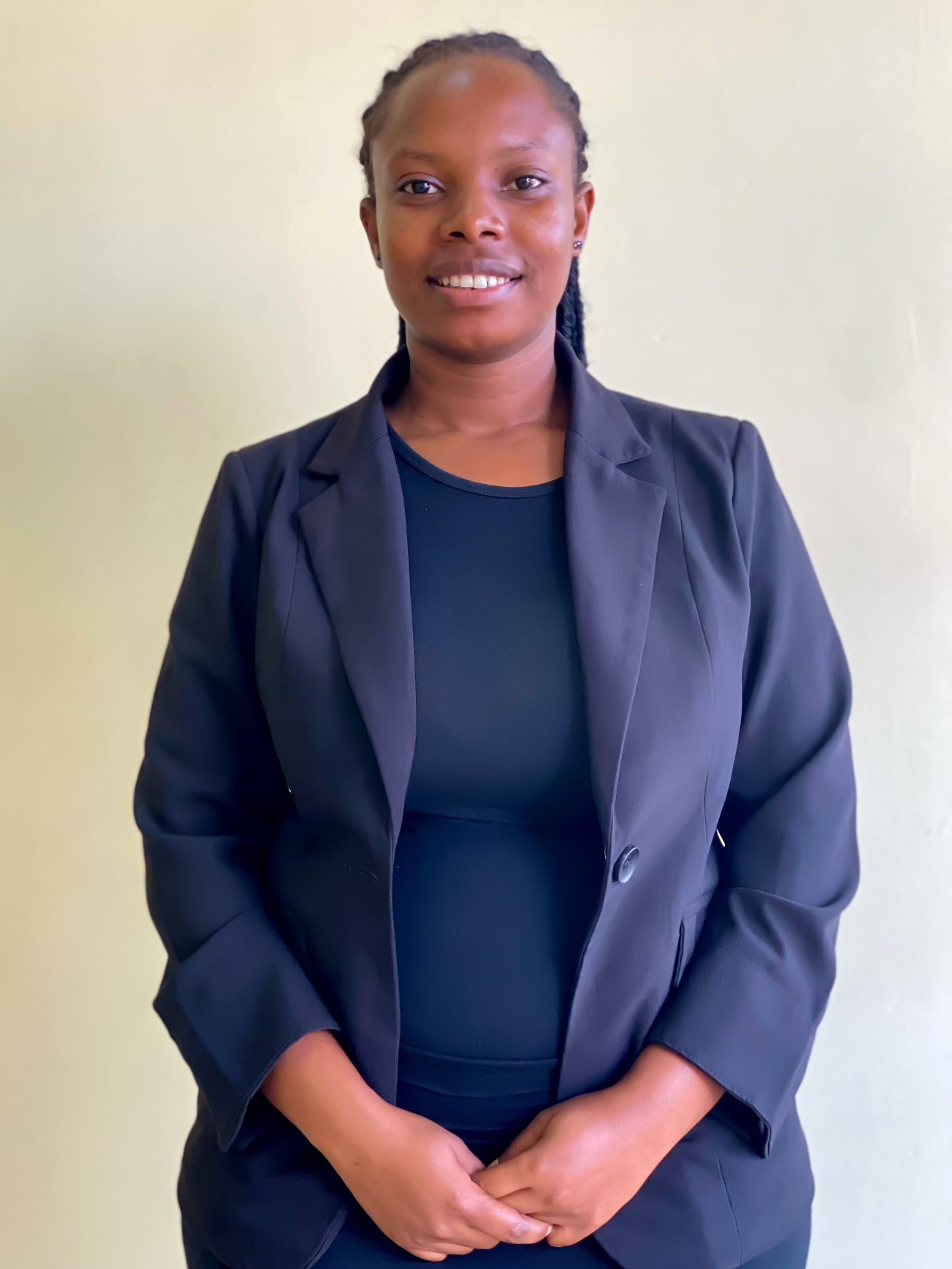
“This achievement reflects not only exceptional intellectual ability but also discipline, resilience, and sustained dedication to the highest standards over four years. Graduating with first-class honors is no small feat; it requires consistent outstanding performance.
“Her accomplishment sets a powerful example for continuing students and reaffirms our department’s commitment to nurturing excellence. We are confident she will make meaningful contributions to the communication profession and society at large,” says Dr. Nakiwala.
On graduation day, applause will crest and recede. The gowns will fold back into wardrobes. The transcripts will be filed away in cabinets. But something quieter will endure; a young woman from Nabbingo who once missed her Law mark, who spent 20 hours a week on the road, who discovered that storytelling is power, and who now walks into Freedom Square not by accident, but by intention.
Life, as she has come to understand it, lives on.
Humanities & Social Sciences
Dr. Pamela Khanakwa Honored for Steering Record 18 PhD Candidates for the Mak 2026 Graduation
Published
1 month agoon
January 23, 2026By
Jane Anyango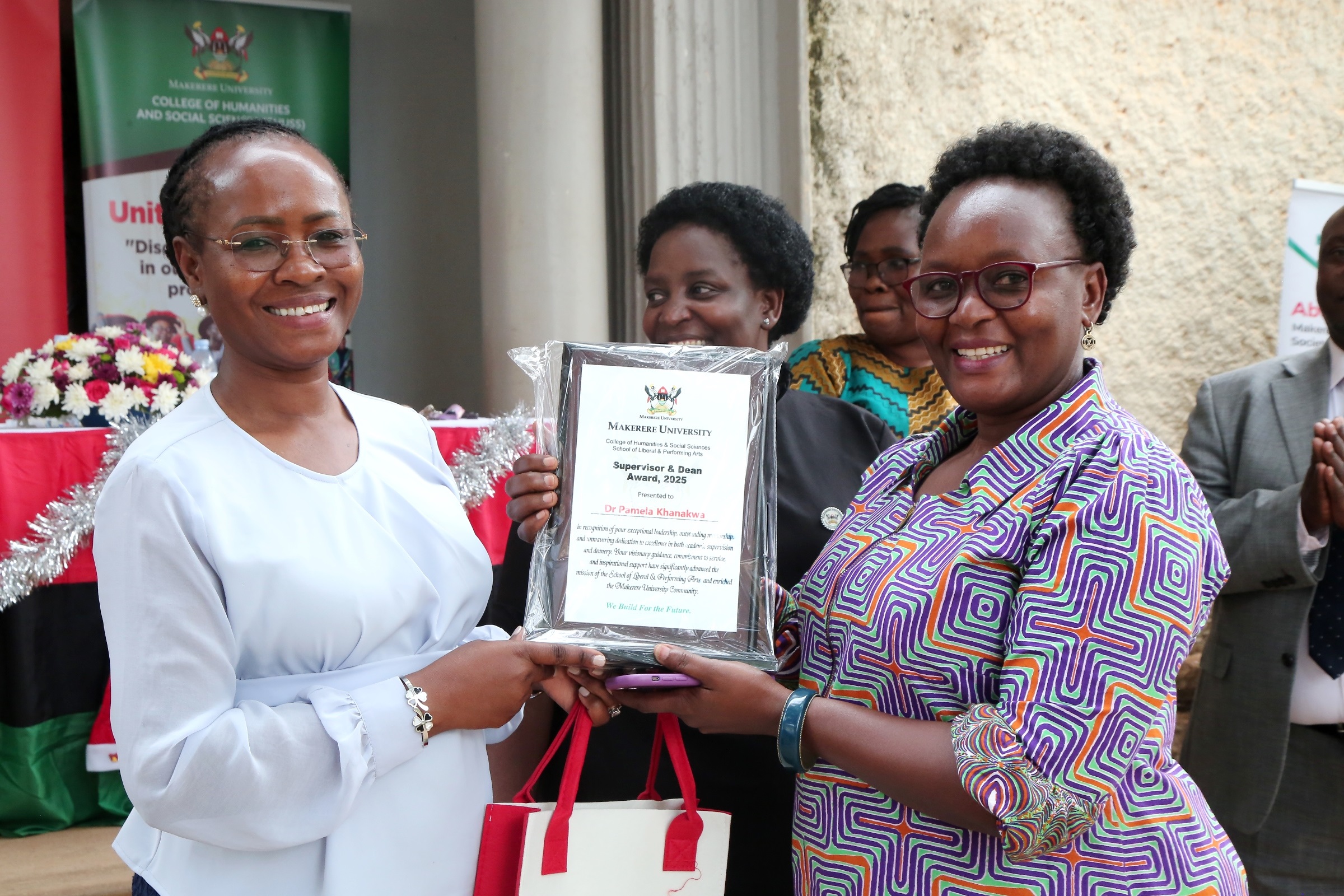
Six personally supervised, three completed in record time, as School of Liberal and Performing Arts sets a historic milestone. Dr. Pamela Khanakwa got the Award as Best PhD Supervisor and Dean
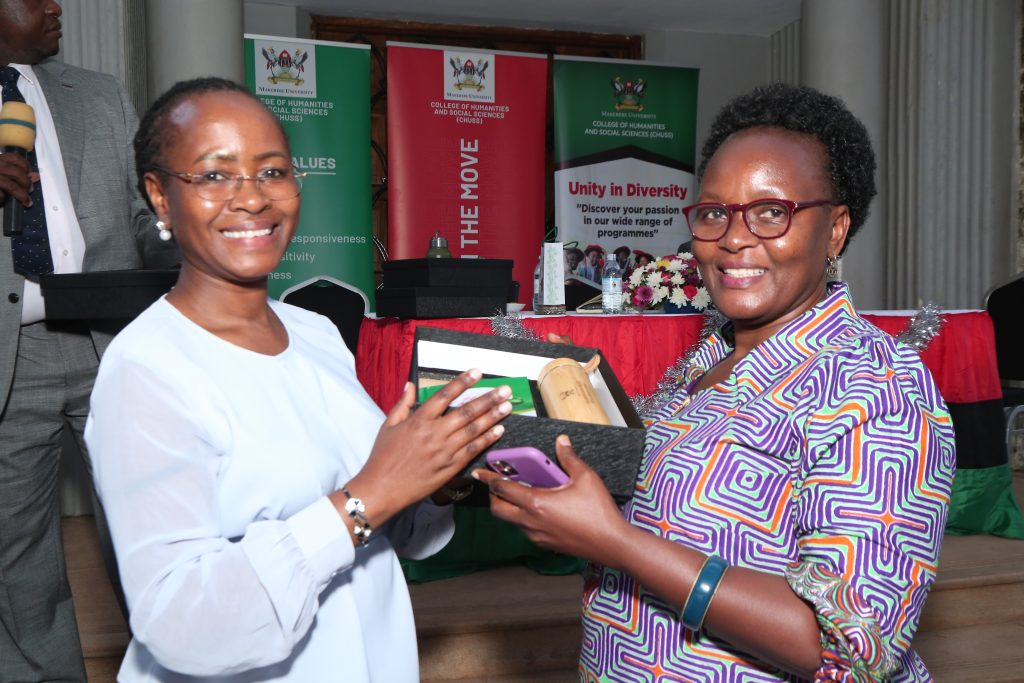
A Historic Academic Milestone for SLPA
The College of Humanities and Social Sciences (CHUSS) recognised the Dean of the School of Liberal and Performing Arts (SLPA), Dr. Pamela Khanakwa, for outstanding academic leadership that has seen the School field 18 PhD candidates for the next 2026 Makerere University Graduation Ceremony scheduled for 24th-27th February. Remarkably, six of these doctoral graduates were directly supervised by Dr. Khanakwa, with three completing within the official three-year timeframe, an exceptional achievement in graduate training. The recognition was announced during the CHUSS End-of-Year Get-Together, where staff applauded Dr. Khanakwa’s dedication, humility, and relentless commitment to postgraduate supervision and timely completion.
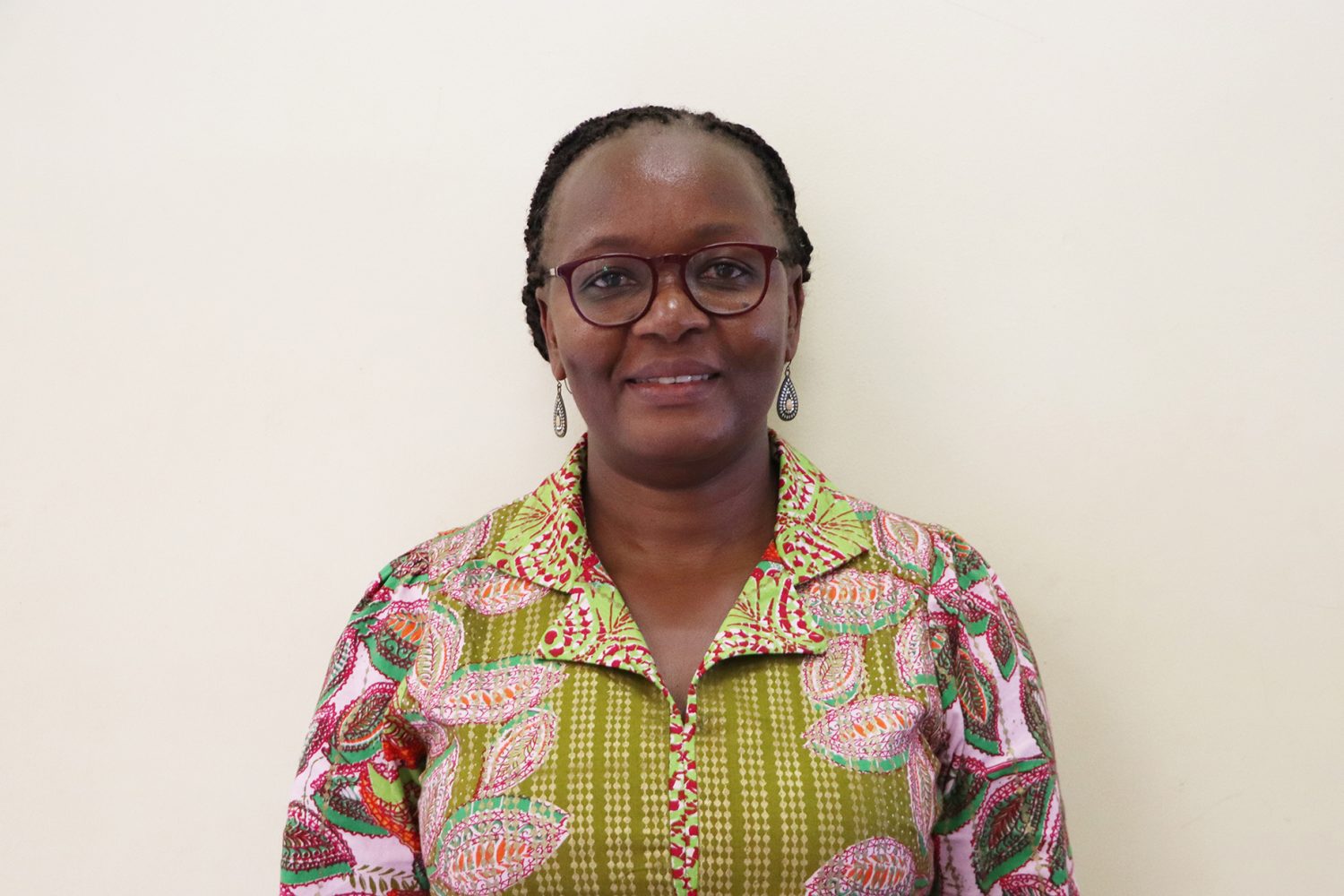
Message to Academic Staff
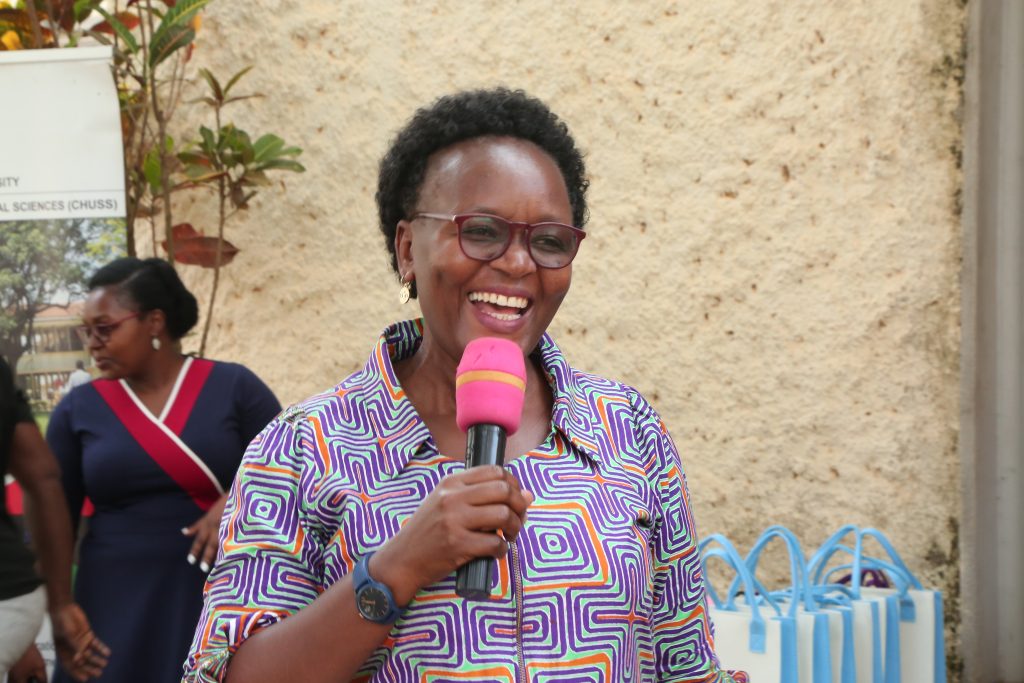
Q: What message do you have for your staff following this achievement?
Dr. Khanakwa:
First, I celebrate my staff and thank them for their dedication to supervision and student support. Academic work is demanding, and material rewards are often limited, but the true satisfaction comes from seeing students succeed.
I encourage my colleagues to remain committed. Yes, the workload is heavy, but many things are possible with dedication and teamwork. Let us continue working for the good of our students, our School, and Makerere University.
Leadership Rooted in Humility
Q: Many colleagues describe you as humble, down to earth, and hardworking. What shapes this character?
Dr. Khanakwa:
I think it is largely my upbringing. My mother was a primary school teacher from the 1950s until the mid-1980s. She worked extremely hard to raise us, combining teaching with farming to ensure we had school fees and basic needs. From her, I learned humility, discipline, and the value of hard work.
I also learned that leadership positions are temporary. You occupy them today, and tomorrow you move on. So humility is essential.
My graduate training also shaped me significantly. My PhD supervisor emphasized that graduate study is a full-time job and that results matter more than noise. Let people see your work through outcomes, not announcements.
Supervision as a Two-Way Commitment
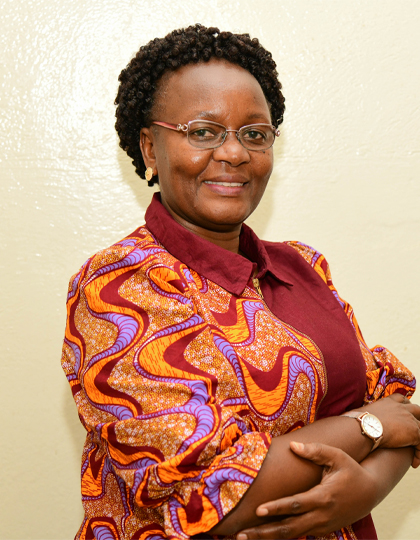
Q: How would you describe your supervision style?
Dr. Khanakwa:
I read my students’ work thoroughly, word by word. Sometimes my comments are tough, but they are honest. Supervision is a two-way commitment. I give feedback, but students must also respond and remain engaged. When that relationship works, progress happens.
Balancing Leadership, Scholarship, and Family
Q: How do you balance being a Dean, scholar, wife, mother, and daughter?
Dr. Khanakwa:
Honestly, I am not sure I balance perfectly. My mother lives far away in Bukwo, so visiting requires careful planning. My children grew up understanding the demands of academic life. I pursued my PhD in the United States and spent long periods away, but we adapted as a family.
Work has become part of my lifestyle. I use weekends to read dissertations, review manuscripts, and write. Sometimes my children ask if I ever sit without working, but this is the commitment I made. As we often say jokingly, “We humbly applied for the job, so let us do the job.”
Scholarship Beyond Supervision
Dr. Khanakwa is also an active scholar and editor. In the past year alone, she has:
- Edited scholarly volumes on archives, memory, method, and pedagogy
- Published a book with Routledge Companion
- Co-authored journal articles and book chapters with graduating students, including Priscah Asiimwe and Anatoli Lwasa Mpijja
“I feel an obligation to write with students,” she notes. “It takes time, energy, and commitment, but it is part of academic mentorship.”
Who Is Dr. Pamela Khanakwa?
Dr. Pamela Khanakwa is the Dean, School of Liberal and Performing Arts, College of Humanities and Social Sciences, Makerere University. She is a seasoned scholar, supervisor, administrator, and mentor whose leadership continues to redefine graduate training excellence. Details about Dr. Pamela Khanakwa can be accessed at: https://chuss.mak.ac.ug/en/personnel/pamela-khanakwa/
More details are available in her attached curriculum vitae.
The CHUSS End- Of-Year-Get-Together
On 12th December, 2025 the college leadership organised a get-together end of year gathering to take stock of the achievements, challenges and brainstorm together on how to move forward. The event was marked by entertainment, team building games, appreciation speeches, sharing a meal and a Christmas package for every staff
Retirees and staff recognised
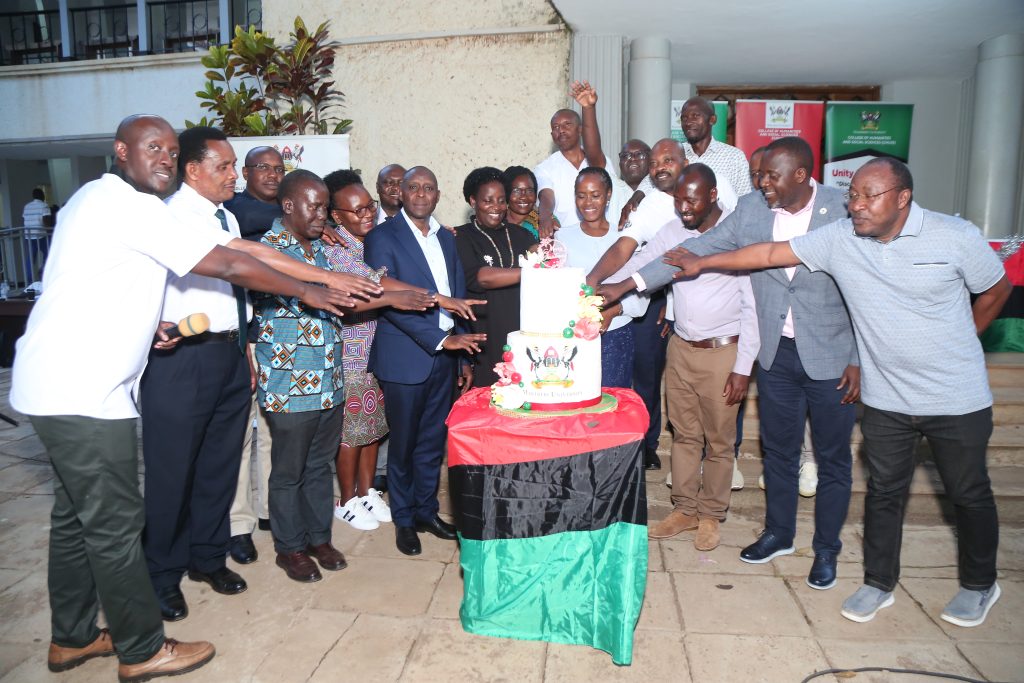
Five retired staff Dr. Micheal Wangotta Masakala, Dr. Anatole Kirigwajjo and Dr. Jackson Kizza Mukas (all from the School of Languages, Literature and Communication), Assoc. Prof. Florence Nansubuga (School of Psychology), Dr. Tusabe Gervase (School of Liberal and Perforing Arts) and Ms. Scovia Nganda Sekweyama (secretary from the School of Social Sciences) were recognised for their dedicated services to the university.
In addition to Dr. Pamela Khanakwa’s Award as Best PhD Supervisor and Dean, Ms. Birabwa Florence scooped the award of Best Registrar of the year. Birabwa is the registrar for the School of Liberal and Performing Arts.
Administrative and support staff including Ms. Mary Gyezaho and Annet Kashumbusha(both administrative secretaries in the Principals office), Farouq Lule (IT Officer), Godfrey Kakooza (cleaner), Charles Sebuguzi (driver) and Jane Anyango (Communications officer) were recognise with awards for outstanding service. Dr. Mohamed Mayanja Kajumba was from the School of Pyschology was recognised as the person with an outstanding talent in Handwriting.
The celebrations held in the Arts quadrangle were graced by the Vice Chancellor Academic Affairs Prof. Sarah Ssali and the Deputy Vice Chancellor in charge of Finance and Adminstration Prof. Ireeta Tumps.
Humanities & Social Sciences
Ugandan Journalists Trained on Peace and Gender-Sensitive Reporting Ahead of 2026 Elections
Published
2 months agoon
January 9, 2026By
Jane Anyango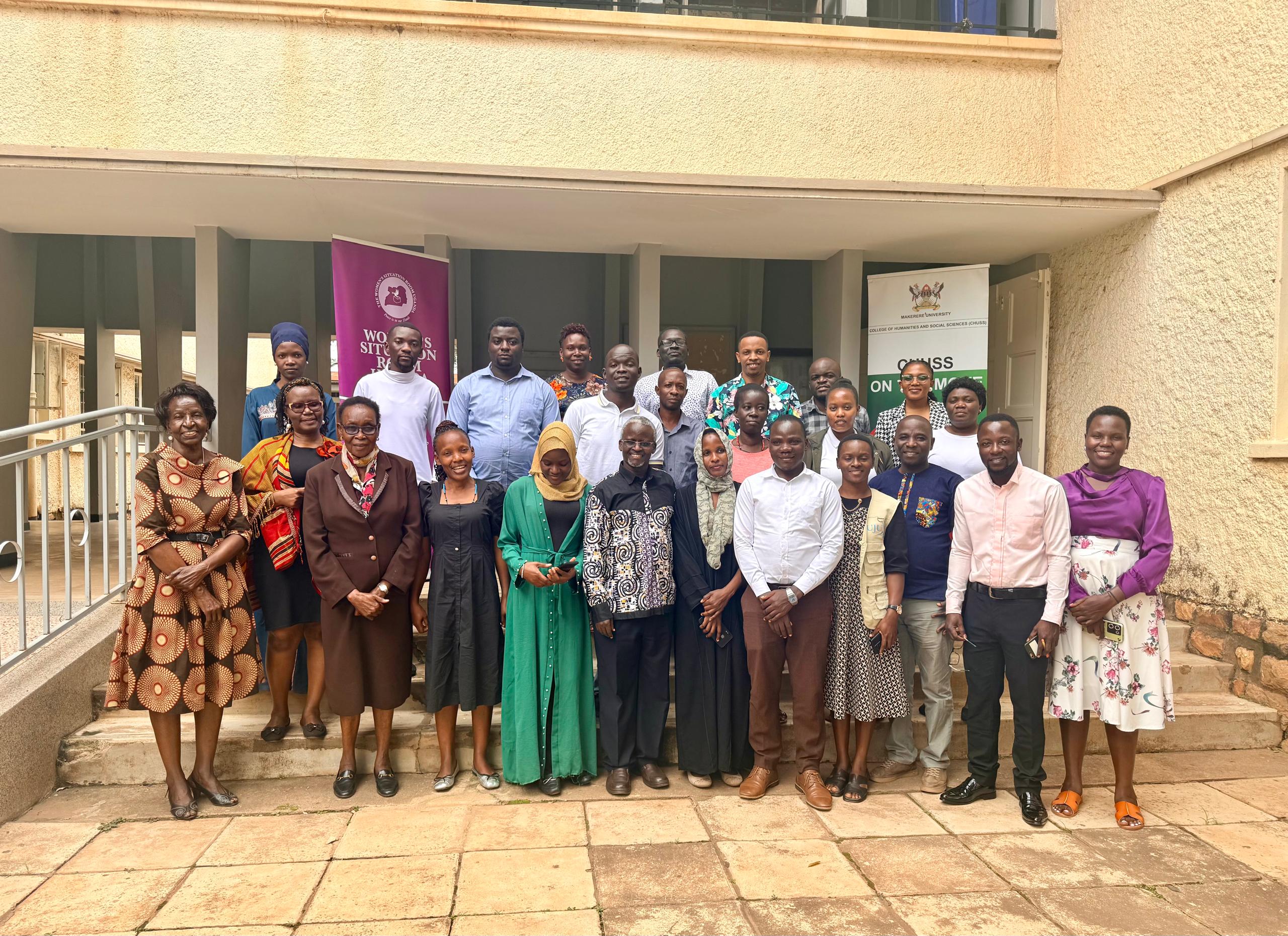
Kampala, Uganda – January 9, 2026
Ahead of the January 15 general elections, Ugandan journalists have undergone specialized training on peace and gender-sensitive reporting to ensure responsible media coverage during the election period. The two-day training, held from 8th to 9th January 2026 at Makerere University’s College of Humanities and Social Sciences Smart Room, was organized by the Women’s Situation Room (WSR) in partnership with various stakeholders and brought together journalists from across print, broadcast, and online platforms.
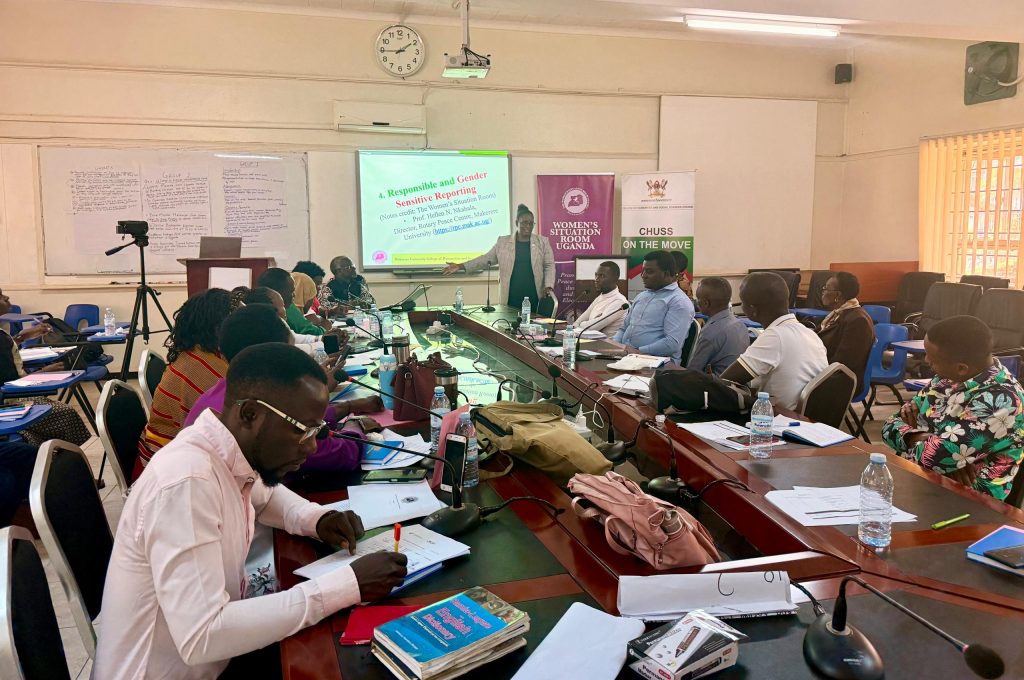
The main objective of the training was to strengthen the capacities of media in reporting and documenting electoral processes in a responsible and gender-sensitive manner. The specific objectives included: strengthening journalists’ skills to cover the 2026 elections in a fair, balanced, gender-sensitive, and non-violent partisan way; enhancing the role of media to enable citizens to be well-informed and actively participate in the election process; ensuring focused and balanced reporting on peace during and after elections; and strengthening partnerships between the WSR and media houses during the election period.
The training covered multiple critical modules. Day one focused on responsible conflict-sensitive reporting, emphasizing principles such as balance, impartiality, and accuracy. Participants explored the role of media as a relayer of the population’s voice, election monitor, catalyst for social cohesion and reconciliation, contributor to the accountability of political actors, and a platform for detecting and debunking digital media misinformation and hate speech.
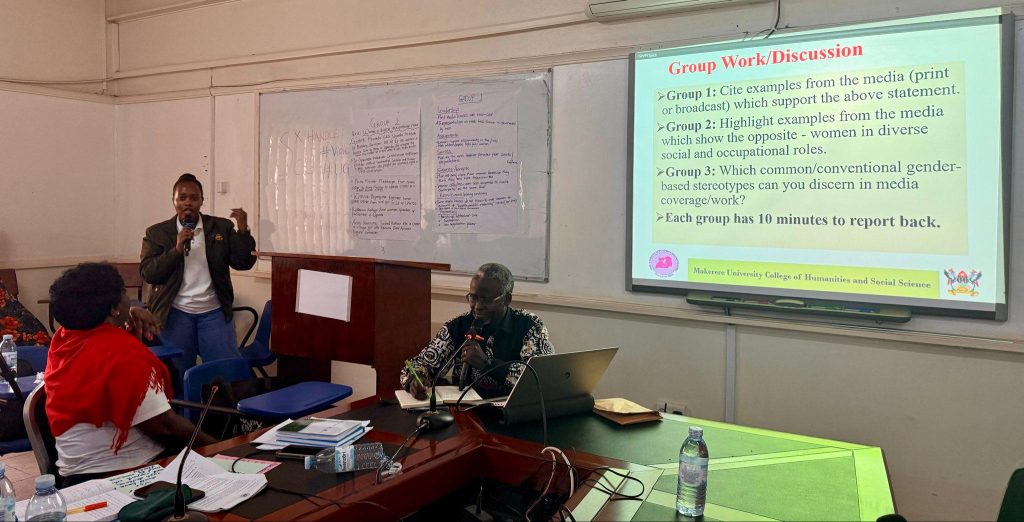
Day two addressed responsible and gender-sensitive reporting. Key aspects included the definition of gender-sensitive reporting, how to become a gender-sensitive reporter, critical elements in reporting with gender awareness, packaging gender-sensitive stories, and a checklist for detecting and avoiding gender-insensitive reporting.
Her Lordship, retired Judge Justice Mary Mayitum, emphasized the importance of peace as the foundation of development and democratic engagement. “Because we value peace more than anything. Without peace, really, you can do nothing. But where there is peace, you can have time to reflect, discuss with others, and join in meaningful dialogue,” she said. She warned that the country’s past conflicts, such as those in Gulu, underscored the necessity of maintaining national harmony.
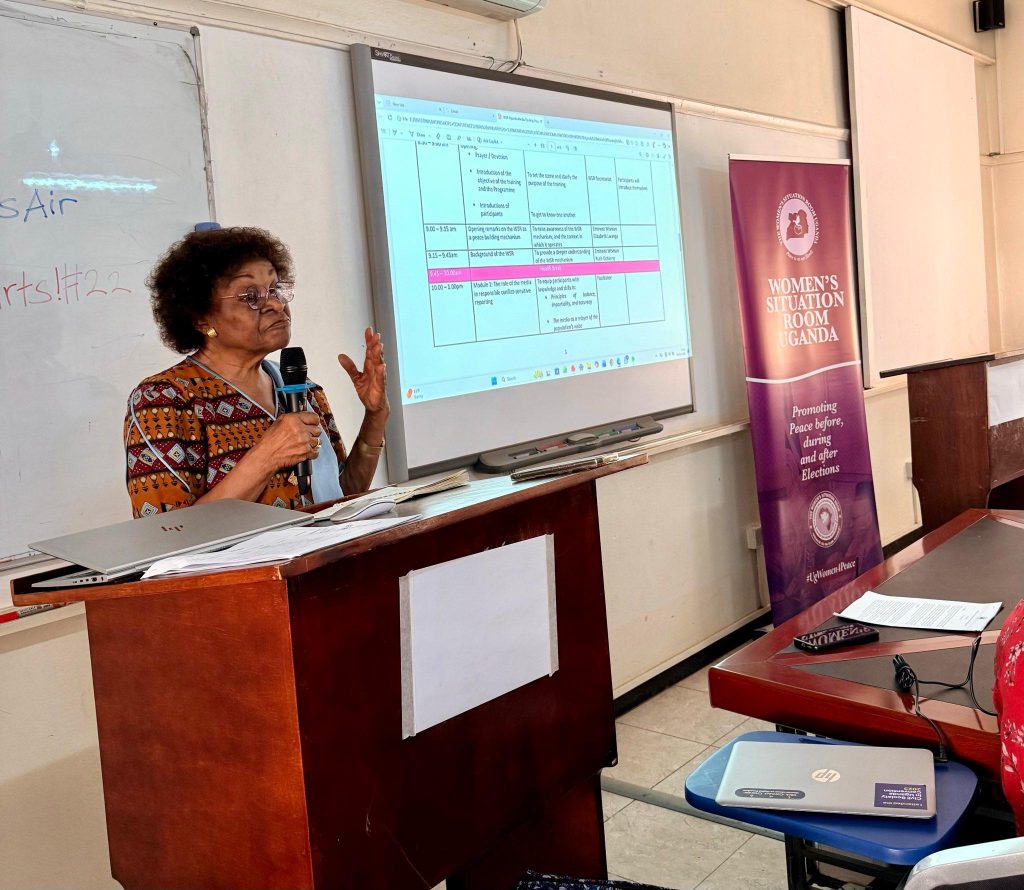
Justice Mayitum also urged other key election stakeholders to uphold peaceful conduct. “Being peaceful is the very heart of life. We have spoken to police, security personnel, political parties, and the Electoral Commission. We want politicians to have a code of conduct and to understand that it’s okay to think differently without fighting or hating one another,” she added.
Dr. William Tayebwa, lead facilitator and senior lecturer in the Department of Journalism and Communication at Makerere University, said, “This training is about conflict-sensitive reporting, peace journalism, and gender-sensitive reporting in the context of the elections. The emphasis was on giving female political candidates a voice while ensuring journalists report responsibly on election-related matters.”
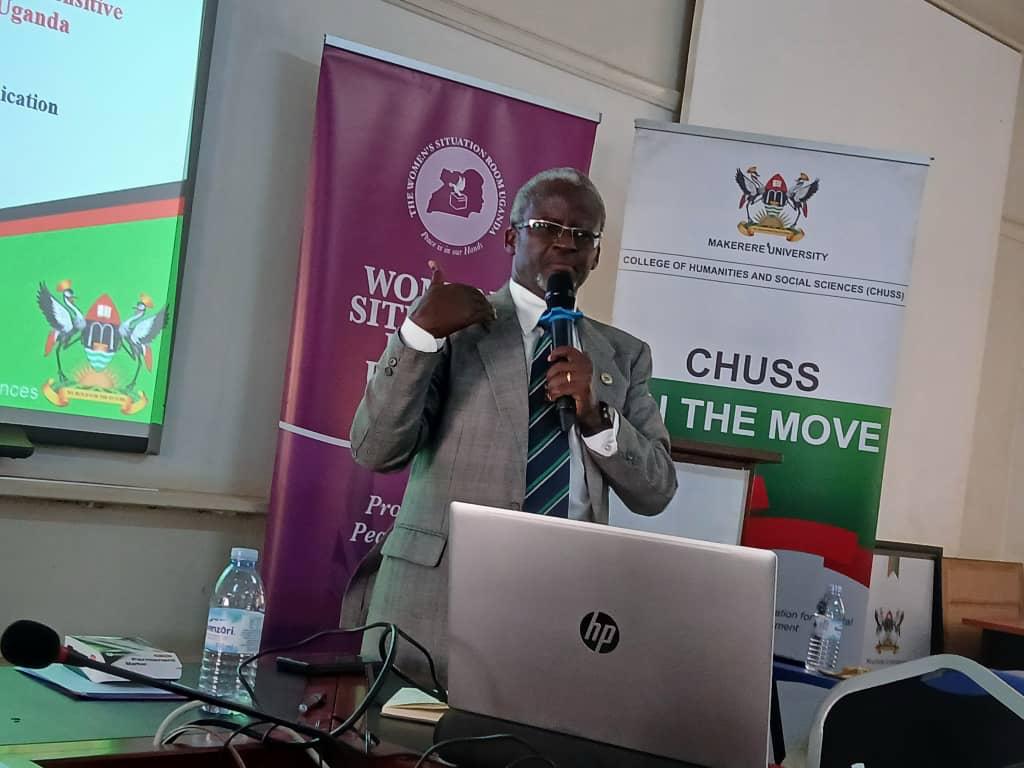
Participants described the training as timely and impactful. Tony Banizengabo of CBS Wakiso District said, “We’ve benefited a lot. We’ve been trained to write stories which bring peace, not conflict. Ahead of the elections, we are very ready to be part of peacemakers.”
Dorcas Kimono of UBC TV Kampala added, “It was so timely and rich. We learned how to report without promoting or fueling violence, giving voice to victims without angering them or encouraging violators. This is very vital, especially as we approach the 2026 elections.”
The training aims to equip media personnel with the knowledge and skills to uphold professional ethics while contributing to a peaceful, inclusive, and gender-sensitive electoral process.
Trending
-

 Humanities & Social Sciences1 week ago
Humanities & Social Sciences1 week agoMeet Najjuka Whitney, The Girl Who Missed Law and Found Her Voice
-

 General1 week ago
General1 week ago76th Graduation Highlights
-

 Health2 weeks ago
Health2 weeks agoUganda has until 2030 to end Open Defecation as Ntaro’s PhD Examines Kabale’s Progress
-

 Agriculture & Environment2 weeks ago
Agriculture & Environment2 weeks agoUganda Martyrs Namugongo Students Turn Organic Waste into Soap in an Innovative School Project on Sustainable Waste Management
-

 General2 weeks ago
General2 weeks agoMastercard Foundation Scholars embrace and honour their rich cultural diversity
